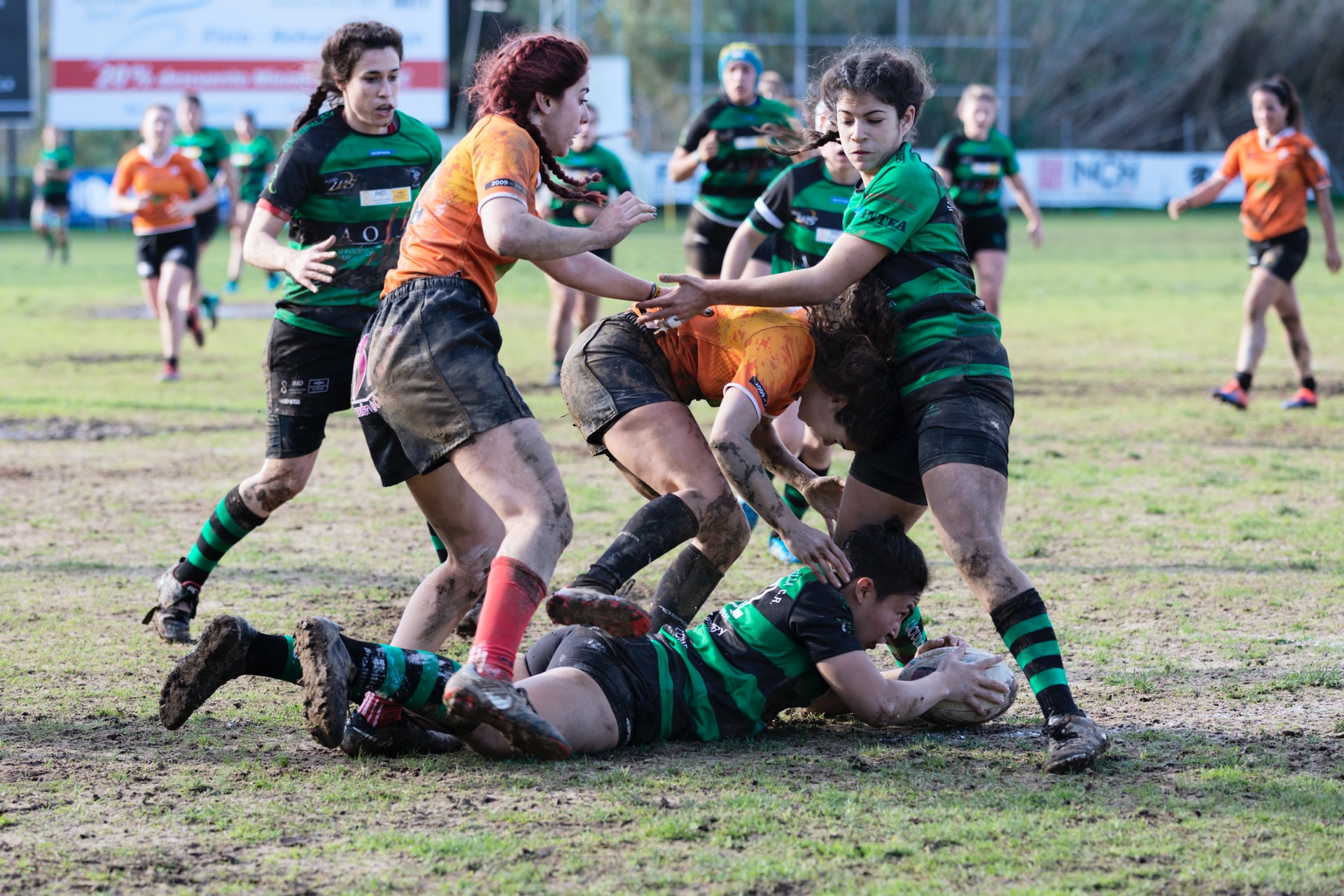Photo by Quino Al on Unsplash
Rec Rugby, 195 Years Later*
— for Maggie
Current version of the original — (plump ovoid freshly plucked from perfectly uneven mud and barely tucked under an arm bruised and translucent, impatience betraying a stone-cold determination amidst the Saturday spectacle of leashed dogs, unleashed toddlers, discarded coffee cups) — she blazes in momentary slo-mo the fabled diagonal, the cut-back cleft like silence itself, precious rift between scraps of women transiently planted in their disparate, itinerant dominions like lost souls hobbled or relics caged in spent cloisters of pain and breathlessness. Radiant with copper curls trailing like cartoon speed lines, she floats low to avoid high tackles by mountainous opponents, static as shrubs, their arms outstretched like priestesses hailing incense from a stationary brazier. Her darting, exacting and extravagant, at first threads their clumsy perches, aligns them like uninhabitable privets, invalidates their drunken reactions before inexorably drawing their defense, their flocking like bulky vultures, and soon she’s down and underfoot, ankles, fingers, red-haired head bright and exposed, awash among sprawled bodies. She’s earned the dream—become the impetus—to instigate the ruck, animate the stylized back line, leap up and re-blossom to stave off defeat.
*Legend has it that in 1823 sixteen-year-old William Webb Ellis, impatient with the slow pace of a Rugby School football game, was the first player to pick up the then round ball and run with it.
True North
The lone crow on the lone pole where the weathervane used to whirl insinuates my need for misdirection. He is an arrow of skittish attention, of scant intention: the cock and hop, the flick and caw toward anything on the wind. Now angling east, now south by southwest, he designates with beak then disagreeing tail feathers, with a lean-to and a shoulder scrunch, with an attitude from his beady black eye— as if he were ever the one to judge. And once he’s spun like a pin on a binnacle past all points of some madcap inner compass— once the clouds have bowed to push on and the grasses waved their gratefulness— he unfurls the shifty sails of his wings, and the breeze relieves him of his post.
